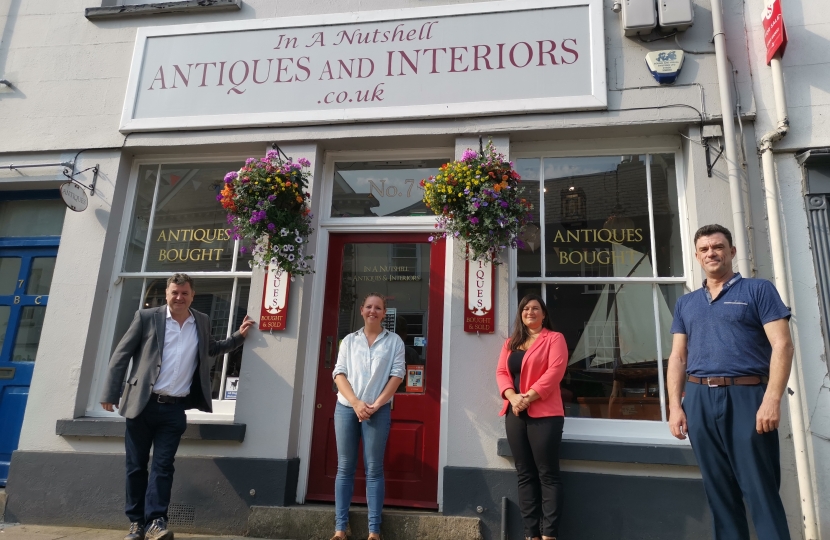
We should always be vigilant when a Government announces massive spending increases. The headline may be appealing but tough questions need to be asked. Is the spending good value for the taxpayer? Will the investment reach the people it is intended to help? How will it be funded?
Normally these questions are debated at length but the past six months have been anything but normal. The Chancellor’s response to the coronavirus pandemic had to be quick and it had to be substantial. More than 12,000 employees in our Central Devon constituency have been furloughed and similar financial support has been given to a more than 5,000 self-employed workers. 2,000 business in Central Devon have received a £10,000 Small Business Grant, more than 1,700 local businesses have received a total of £65.4 million in Bounce Back Loans and more than 600 local businesses in the retail, hospitality and leisure sectors will pay no business rates this year. Our cafés, pubs and restaurants have benefited from the Eat Out to Help Out scheme and will continue to benefit from a cut in VAT from 20% to 5% until January. Given that these measures (and many more) will end up costing hundreds of billions of pounds, let’s consider the three questions I posed above.
Will the spending provide value for the taxpayer? The short answer is yes. Without these unprecedented levels of support we would have seen hundreds of thousands of businesses go under and millions more people unemployed. In the long term this would have done even more economic damage. There is actually an important question to be asked as to whether the Chancellor should spend more now on expanding these schemes.
Has the investment reached the people it is intended to help? Having corresponded with businesses across our constituency during the past few months and visited several in recent weeks, including in Ashburton and Chudleigh, again the short answer is yes. I have been encouraged with the speed at which Government grants and loans have been accessed and many businesses have told me that without such significant support they would not have been able to keep trading. Regrettably, the support will not save every business and every job, but it has certainly made a big difference.
How will the spending be paid for? Because interest rates are so low there is little to be gained in trying to pay off the debts quickly, particularly as this would most likely hit businesses or consumers or both. The Chancellor is more likely to pursue a longer-term strategy of raising revenue once the economic recovery is well entrenched. There are many options for paying this additional borrowing back and many of these options involve additional taxes. For this reason the Treasury Select Committee which I chair is looking into these issues right now and we will report later in the year. I will keep you posted.
Photo: Mel meeting with Ashburton Chamber of Trade Chair Lydia Wood in August.


